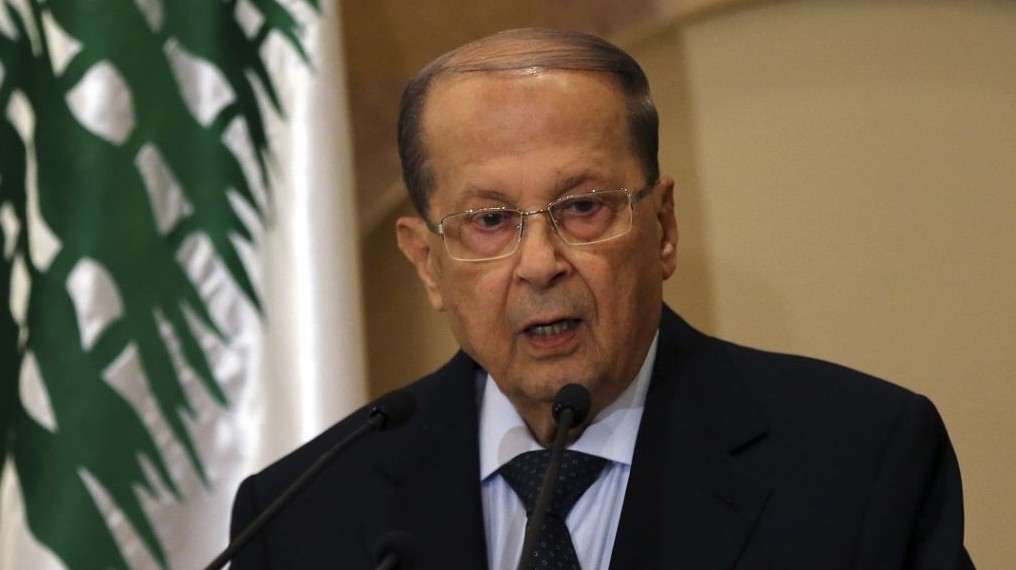Lebanese lawmakers on Monday elected Change and Reform bloc chief MP Michel Aoun president, ending a more than two-year political vacuum in the country’s top post.
Aoun, who is the founder of the Free Patriotic Movement, secured in the second round of voting 83 votes from the 127 lawmakers present after garnering an absolute majority of 65 votes in the 128-seat parliament.
In the first round, which requires a candidate to get a two-third majority, Aoun failed to secure 86 votes.
In his swearing in ceremony, Aoun stressed the importance of adopting a fair electoral law before the parliamentary polls, and steering Lebanon clear of the region’s turmoil.
The newly-elected president said full cooperation between security agencies and the judiciary are necessary for stability.
He said all means must be used to liberate occupied territory.
Aoun also told lawmakers that the consolidation of the Lebanese army is a priority to preserve the country’s sovereignty.
He said his government would tackle terrorism “preemptively and preventively” until it is uprooted.
Aoun also said that any solution to the war in neighboring Syria must guarantee the return of Syrian refugees in Lebanon. Syrian camps in Lebanon must not turn into militant hideouts, he added.
The 81-year-old former general has long eyed the presidency, and his candidacy was backed by the so-called Hezbollah, his ally since a surprise rapprochement in 2006.
But the key to clinching the post has been the shock support of two of his greatest rivals – Lebanese Forces chief Samir Geagea, who quit the presidential race in January and announced his backing for Aoun, and Future Movement leader ex-PM Saad Hariri, who earlier this month said his endorsement for the FPM founder was necessary to “protect Lebanon, protect the (political) system, protect the state and protect the Lebanese people”.
After his election, Aoun was due to return to Baabda Palace, exactly 26 years after he was forced out of it as army commander and interim premier by Syrian forces and Lebanese troops loyal to a rival commander.
Ahead of the vote, army helicopters flew over the capital and cars were banned from entering most of downtown Beirut. Metal detectors were set up in the streets around Parliament.
Lebanon had been without a head of state since the term of President Michel Suleiman ended in May 2014.
The vacuum came as a result of the boycott of Hezbollah MPs and lawmakers from Aoun’s Change and Reform bloc, causing a lack of quorum.
Aoun’s supporters gathered in areas where he has wide support for celebrations once the results were announced.
